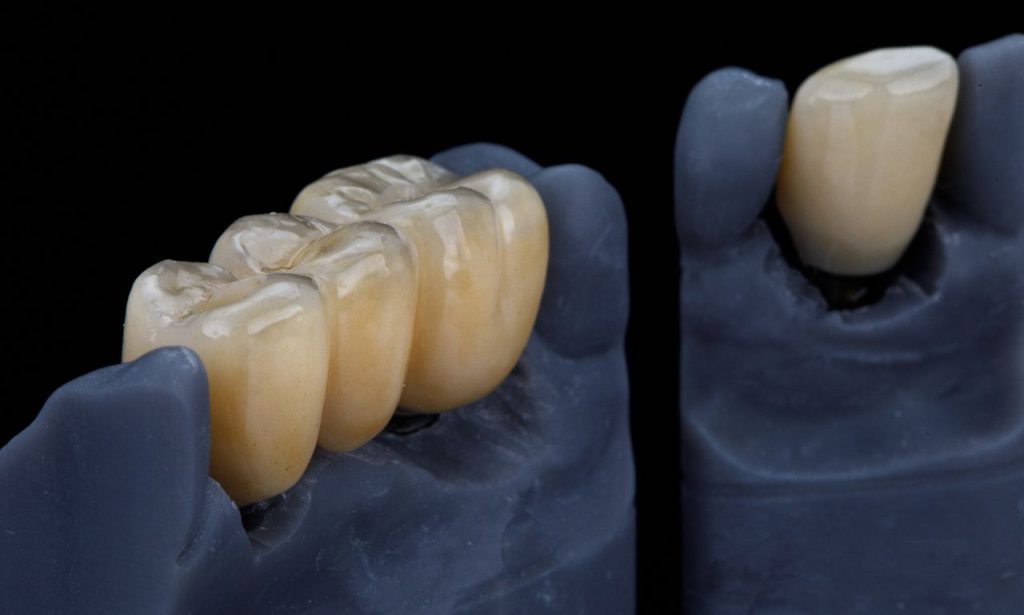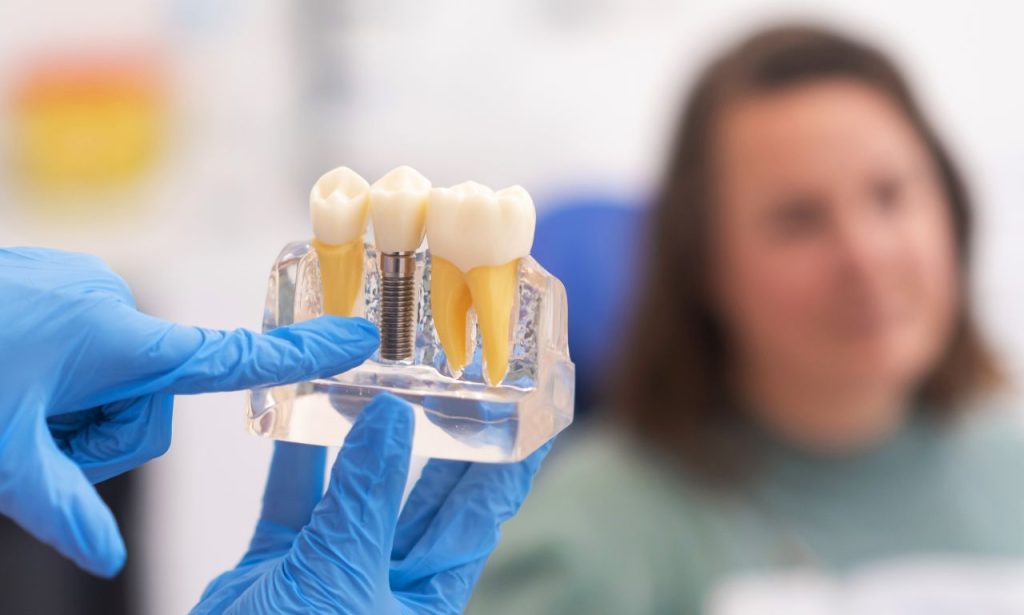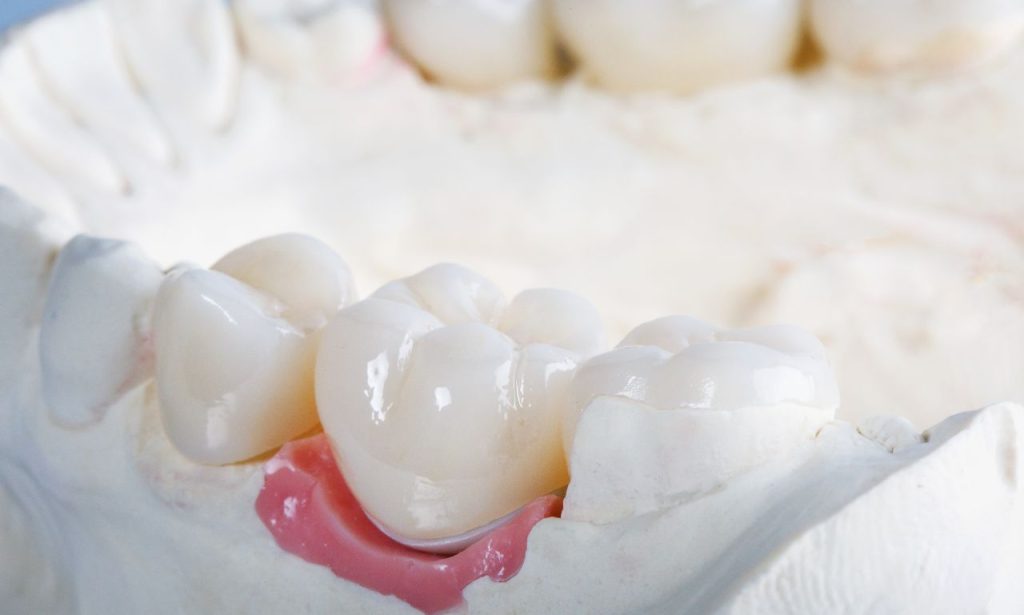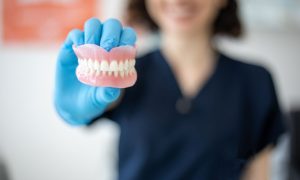So, you’ve been told you need a crown. But your biggest question is—how long does it take to get a permanent crown? No worries, let’s break it down for you step-by-step. We’ll take a dive into all the juicy details so you know exactly what to expect. Getting a permanent crown is a journey that involves several steps, each crucial for ensuring a perfect fit and long-term success.
What Is a Dental Crown?
A dental crown is like a superhero cape for your tooth. When your natural tooth is weak or damaged, a crown steps in, covering the entire tooth and restoring its strength, appearance, and functionality. Think of it as a snug, personalized cap that fits over your tooth to save the day.
- Purpose: Crowns are designed to protect, cover, and restore damaged teeth or to enhance the look of a discolored or misshaped tooth.
- Material: They can be made from various materials, including porcelain, metal, ceramic, or a combination of these.
Whether you have a cracked tooth, a severely decayed tooth, or just completed a root canal, dental crowns ensure that your tooth can keep doing its job—chewing, biting, and making your smile dazzle.
Types of Dental Crowns

Choosing a dental crown isn’t a one-size-fits-all process. You have options, and the type of crown you need depends on your personal preferences, budget, and, of course, the condition of your tooth.
Material Options
- Porcelain Crowns: These are highly favored for their natural-looking appearance, blending seamlessly with your existing teeth. Ideal for front teeth!
- Metal Crowns: These are strong and durable, typically made from gold alloys or metal alloys. They work best for molars where strength is essential.
- Ceramic Crowns: Another popular choice for their ability to look just like your natural teeth. Plus, they work great for those with metal allergies.
- Resin Crowns: A budget-friendly option, though less durable than porcelain or metal.
Traditional Crowns vs. Same-Day Crowns
- Traditional Crowns: Traditional dental crowns require multiple visits to complete the process. You’ll have a temporary crown fitted until the permanent crown is ready from the dental laboratory. This can mean waiting for 1-2 weeks.
- Same-Day Crowns: Thanks to CEREC technology, you can get a crown in a single visit. Same-day crowns are all about instant results—no need to wait for weeks with a temporary crown. Just imagine walking into the dental office and walking out with a new tooth, all in a day!
The Dental Crown Fitting Process
Getting a dental crown isn’t as simple as “snap it on.” The entire procedure involves a few intricate steps to ensure your crown fits perfectly and functions like a charm.
Step 1: Initial Consultation
Before diving in, your dentist will conduct a thorough examination of your tooth. This may include X-rays to understand the condition of your tooth structure. If extensive decay or a root canal is involved, they’ll make sure your tooth is healthy enough for a crown.
- Duration: Usually 30-60 minutes.
Step 2: Tooth Preparation
Your tooth needs to be prepared for the crown. This involves shaping the natural tooth by filing it down to make room for the crown. In cases where there isn’t enough tooth structure left, your dentist might add a filling material to build it up.
- Goal: To ensure the crown will fit snugly over the prepared tooth.
- Duration: Typically, it takes around 30-60 minutes.
Step 3: Impressions for the Crown
Impressions are taken to ensure the crown fits precisely. These can be done using a putty-like material or through digital impressions, which are faster and more accurate.
- Traditional Impressions: Can take about 10-15 minutes.
- Digital Impressions: Only a few minutes, thanks to advanced scanning technology.
Step 4: Temporary Crown Placement
While you wait for the permanent crown, a temporary crown is placed to protect the prepared tooth. It may not be as strong as the permanent one, but it keeps you comfortable in the meantime.
- Duration: Temporary crowns can last anywhere from a couple of weeks to up to 4 weeks, depending on your dental crown appointment schedule.
Step 5: Final Crown Placement
Once your permanent crown is ready, you head back to the dentist for the final crown placement. The dentist removes the temporary crown and checks the fit of the new crown. Any minor adjustments are made, and the crown is cemented into place.
- Duration: 20-30 minutes.
Timeline for Each Step
So, how long does it take to get a permanent crown? Let’s break it down!
Average Duration for Tooth Preparation
Tooth preparation, which involves reshaping the natural tooth, takes around 30-60 minutes. This depends on the complexity of your case and how much tooth structure needs to be removed.
Timing for Impressions and Temporary Crowns

After tooth preparation, impressions are made, and a temporary crown is placed. The impressions are then sent to a dental laboratory, which can take 1-2 weeks to create the permanent crown. During this period, your temporary crown keeps your tooth protected.
Scheduling the Final Appointment
Once the permanent crown is ready, you will need to schedule a follow-up appointment. This typically happens within 2-4 weeks of the initial appointment.
- Same-Day Crowns: If your dental office has cutting-edge technology like CEREC, you could have a custom crown milled right there, saving you a second trip.
- Traditional Crowns: For traditional crowns, you’re looking at around 2-3 visits, spread over 1-3 weeks.
How Long Does It Take to Get a Permanent Crown?
The question remains—how long does it take to get a permanent crown? Generally, the timeline can vary depending on the type of crown and dental technology available. For traditional crowns, the process can take 2-4 weeks, from the initial appointment to final placement. However, with same-day crowns, the entire procedure can be completed in a single visit.
Factors Influencing the Duration of the Crown Process
The time required for getting a permanent crown isn’t set in stone. There are several factors that can impact the timeline.
Complexity of the Case
- Tooth Condition: If your tooth requires a lot of preparation or if it has undergone root canal treatment, the process might take longer.
- Gum Disease: If there’s an underlying gum issue, it needs to be addressed before placing the crown.
Availability of Dental Technology
- Advanced Scanning Technology: Some dental offices use advanced technology for digital impressions, cutting down the time needed.
- In-House Milling Machines: Dental offices with in-house milling machines can create crowns on the same day, reducing the need for temporary crowns.
Care Instructions for Crowns
Taking care of your crown is crucial to prolonging its lifespan and ensuring it functions effectively.
- Avoid Sticky Foods: Especially with a temporary crown, avoid chewing gum or sticky candy that could pull the crown off.
- Practice Good Oral Hygiene: Brush and floss around the crown to prevent decay where the crown meets the natural tooth.
- Use Fluoride Toothpaste: This helps keep the tooth underneath the crown strong.
Potential Discomfort During the Process
A dental crown process can come with some discomfort, but it shouldn’t be painful. Here’s what you might experience:
- Sensitive Tooth: After the tooth preparation, your tooth might feel sensitive until the permanent crown is placed.
- Minor Adjustments: After placing the crown, you may feel discomfort as you adjust to the crown’s shape. Minor adjustments by the dentist will fix this.
When to Consult Your Dentist
While dental crowns generally have a high success rate, there are times when you need to reach out to your dentist:
- Loose Crown: If your crown feels loose, it could be due to the cement breaking down.
- Pain: Any persistent pain, especially when biting, should be evaluated by your dentist.
- Ill-Fitting Temporary Crown: If your temporary crown feels uncomfortable, see your dentist to prevent further complications.
Benefits of Dental Crowns
Dental crowns come with a host of benefits—both cosmetic and functional.
- Protects Damaged Teeth: Crowns help save decayed or damaged teeth that would otherwise be lost.
- Restores Functionality: Chewing, biting, and talking become easier with a crown in place.
- Improves Appearance: With options like porcelain crowns, they blend right in and make your smile look flawless.
- Strengthens Tooth Structure: Crowns provide extra strength to a weak tooth, prolonging its lifespan.
How Long Does It Take to Get a Permanent Crown
How long does it take to get a permanent crown depends not just on the dental crown procedure but also on individual factors like your schedule, the complexity of your case, and the type of crown used. In most cases, the traditional route takes 2-4 weeks, while a same-day crown can take just a couple of hours.
- Personal Preferences: If you value convenience, a same-day crown is an excellent option, allowing you to complete the dental crown process in just one visit.
- Laboratory Fabrication Time: Traditional crowns need to be sent to a lab for adjustments, which can add days or even weeks to the waiting time.
Care Instructions for a Permanent Crown

Once your permanent crown is in place, proper care is key to ensuring it lasts for years. Here are some tips:
- Brush and Floss Regularly: Use fluoride toothpaste to help protect the natural tooth structure underneath the crown.
- Avoid Hard Foods: Biting on ice or hard candy can damage the crown, especially right after the dental crown placement.
- Regular Dental Visits: Keep up with regular check-ups to make sure your crown and natural teeth stay in good shape.
Conclusion
The journey to getting a permanent crown can take anywhere from one day to a few weeks, depending on the type of crown you choose and the technology available. Whether you go for a same-day crown or opt for the traditional approach, the key is to follow the entire procedure carefully and listen to your dentist’s advice. A well-fitted crown not only restores function but also boosts your confidence with a healthy smile. So, how long does it take to get a permanent crown? It truly depends, but with modern advancements, you have options to make the process quicker and more efficient.
ALSO READ; What Are Dental Laminates?
FAQs
On average, a dental crown can last anywhere from 10 to 15 years with proper care.
Yes, but it’s best to avoid very hard or sticky foods for the first 24 hours.
Yes, same-day crowns are made of high-quality materials and are just as durable as traditional crowns.
Contact your dentist immediately. A temporary crown is crucial in protecting your tooth until the permanent crown is ready.




